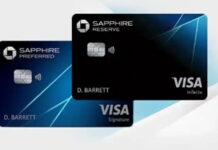Social Security Paper Checks: Starting September 30, 2025, paper checks for Social Security and other federal benefits will largely be phased out as part of a broader modernization effort. This shift aims to boost efficiency, cut costs, and reduce fraud and theft, paper checks cost about $0.50 each to issue, whereas electronic transfers cost less than $0.15. Moreover, paper checks are 16 times more likely to be lost, stolen, or altered compared to electronic payments.
Who Is Affected?
By mid-2025, honestly, barely anyone’s still getting their Social Security by paper check; less than one percent, we’re talking like 400,000 or maybe 500,000 stubborn holdouts.
Anyway, Social Security’s kind of nudging these people to finally join the 21st century. They’re reaching out, trying to get everyone switched over to direct deposit or that Direct Express® prepaid card thing. Makes sense, right? No more lost checks, no more waiting for the mailman or whatever.
Social Security payments coming Wednesday, Sep. 10: See who qualifies for a check
Who Still Gets Social Security Paper Checks After September 2025?
Nowadays, paying through electronic means, is standard. However, some exceptions still stand. In a very limited number of cases, Social Security recipients may still be sent paper checks, but only with the approval of the Treasury, and on an individual basis.
Exceptions are as follow:
1. Exemption Based on the Age
Beneficiaries need not think twice about those who are 90 or above. They automatically qualify for the exemption and are not required to submit any application for the waiver.
2. Mental or Cognitive Impairment
An individual suffering from severe mental confusion and deterioration of cognitive skills to the extent which makes them incompetent to handle electronic payments could be given a waiver on condition that a submission of the waiver application to the Treasury is made.
3. Remote or Underserved Locations
People living in places that are characterized by the lack of proper banking services (e.g., no ATMs or point-of-sale) could be given an exemption. The Treasury would then issue a waiver to them.
4. Severe Hardship or Lack of Bank Access
Those who do not have any other electronic payment method and are in such difficult situations that they can apply for a temporary waiver.
Important: Waiver Process and Risks
Only if a request for a waiver is approved by the Treasury and the SSA will carry out the benefits by check.
If a request for waiver is rejected or still awaiting the decision, recipients may be thus exposed to delays or even discontinuity in receiving their benefits.
When talking about representative payee cases, the waiver must have been submitted by the payee on behalf of the payee to the authorized official.
What Actions Should Recipients Take?
Switch now to an electronic method:
- Use direct deposit into your bank or credit union account.
- Or opt for the Direct Express® prepaid debit card if unbanked.
If you cannot switch, consider applying for a waiver before September 30, 2025:
Call the U.S. Treasury’s waiver helpline at 1-800-967-5042 (or the exemption lines like 1-800-333-1795 or 855-290-1545) to request a waiver.
Submit the printed waiver form by mail if required.
Social Security Paper Checks: Need help?
- Create or log into your “my Social Security” account to update your payment method.
- Call SSA at 1-800-772-1213 (TTY: 1-800-325-0778) or visit a local office.
- Visit GoDirect.gov or the Treasury’s Electronic Payment Solution Center for assistance.
After September 30, 2025, paper checks will largely be history but not erased entirely. Beneficiaries aged 90+, those dealing with mental impairments, or living in remote, underserved areas may still receive checks but only with a Treasury-approved waiver.




